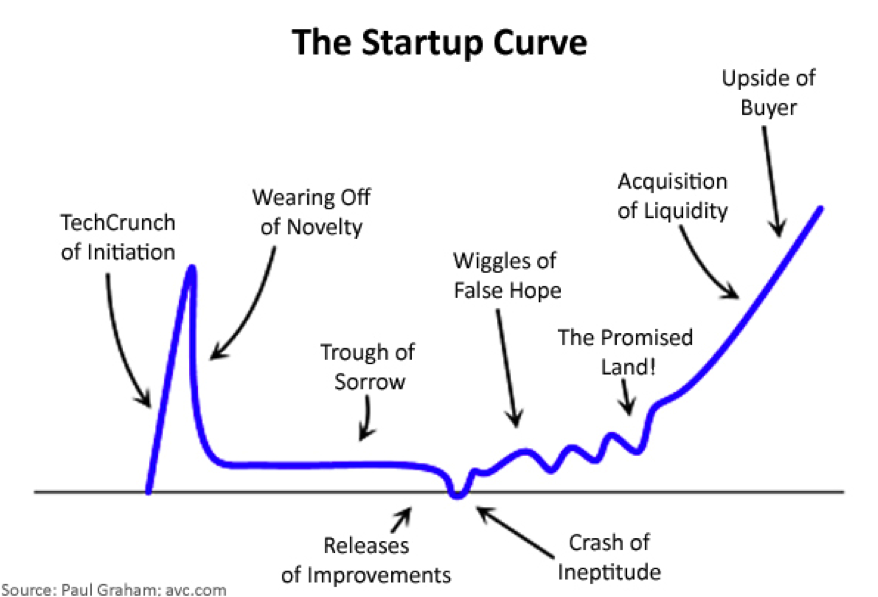Recapping my startup journey and lessons learned
Sorry for the extremely generic title – perhaps this post belongs in the sea of Medium posts with waves of similar content. This post is a bit personal so bear with me if it’s a bit sloppy or grammatically insufferable.
I recently was able to exit my startup with moderate success – I reached my mini-objective + goal. It took a lot of effort and I learned more than I imagined. I hate being generic (again) so I’ll cut to the chase.
I started my company in 2016. With mostly a career focused on product management, it was only natural that I was keen on reading about all the industries in technology and trying to see if there were opportunities I could penetrate with a unique value proposition. It’s quite a generic initial journey and I felt that I almost had no chance to make it out with any sort of financial returns. In fact, I explicitly saved up three years worth of living costs with the expectation that I’d lose everything and make almost no money.
I can’t go over details about my company due to contractual limitations but I’m happy to say that I did get a lot of positive feedback from my customers. That was my initial goal and I was sort of proud that I was able to change the lives of more than three people (my family members were my first alpha testers, who probably could’ve told me white-lies on how great my product was).
My company was in FinTech, an over-saturated field with quite a few giants (SoFi, SigFig, Betterment, Credit Karma, FutureAdvisor, Acorns, Stash) + 20,000 other companies that probably do everything related to Finance and Technology. Finding an opportunity in FinTech seemed nearly impossible to me when I first started. I had no experience in the industry, just personal interest, and passion. Are those two enough to start a company? ABSOLUTELY NOT.
Here are some things I did (which may not work for you, but it helped tremendously for me):
1. Cold-call and Cold-emailed over 1000+ people in 1 month to learn about people’s financial background, interest, passion, age, occupation, pain-points, preferences, etc etc).
2. Sign-up for 25+ FinTech services and without bias, try using them to see how I’d make an ROI. Afterward, invited and paid random people to use the service at my apartment and observe their usage patterns.
3. Learn React (in a week) and make MVPs of landing pages for the initial user acquisition – I spammed these MVP pages in multiple forums and got banned from a few of them, including a subreddit for being too pushy.
There are tons more details that I could go over but basically, the confidence to start a company came after many trials, errors, and most importantly, after REALLY learning that what I would do but solve a problem and provide value.
A lot of people have interesting ideas. For me, tons of cool startup ideas popped-up in my head in bed, so I started taking notes on my phone before passing out from mental exhaustion. After waking up, I’d intensely conduct research to see if the ideas were valid. Most of the times, they’re not. A quick lesson I learned the hard way: just because some idea excites my friends, my family, my co-workers and myself, and just because the idea or product is seemingly innovative and different, it doesn’t mean that you could build a company around it.

Some dangerous facts to consider:
Say you have idea A. It’s likely that there’s a big company that’s doing A+B+C+D+E. You can make your “A” better than this big company’s “A.” But this big company has the resources and funding to keep up with you and eventually build something better. Too many times, you can get stuck in this inner-loop where you truly think you’ll building something unique that people would love. The scary thing to consider is that sometimes, there’s a reason why no one is doing what you’re doing:
1. Someone already failed
2. Someone did research on it and it wasn’t going to be profitable in the long-run
3. It’s too difficult to do and the likelihood of success is slim
4. Someone is actually doing it but better
I’m not sure if I’m qualified to say this, but I think #3 is honestly how most startups find success. I hate using Uber and AirBnB as examples so I’ll diverge a little bit: companies like Postmates and Doordash had an incredibly difficult challenge of logistics, engineering, product, design, legal, accounting, etc. It’s possible that the founders had to work their assess off for that tiny sliver of hope. And it worked.
Would you only commit if you think your chance of success is pretty high? Well, early market research to learn more about your users/customers can give you a lot of confidence, but it can also be false hope. Just because they like your MVP, doesn’t mean that they’ll keep using your product in the long-run. Even if you do get some decent engagement and retention numbers, it only becomes harder, thinking about roadmap, scaling, etc.
Any way, I hate going on tangents, so some last advice:
Some things I learned that doesn’t necessarily apply to everyone:
– Don’t spend money without considering the long-term impact. Be frugal.
– Don’t waste time on silly things like company name or logo (I spent way too much time and money, with a lot of regrets). These are things that can easily change without creating chaos.
– Enjoy the process. If you don’t enjoy doing this sort of work but you are doing it for the money, try re-considering your objective. The industry is dangerous and extremely risky so you really need to be determined. Even then, a lot of the results has to do with luck. Being money driven is fine (it’s often personal), but don’t be blinded by it and always ask questions when making decisions to make sure that you’re not JUST going for the high ROI with short-term goals.
– Read a lot of materials but most importantly absorb them. I read books on negotiations (how to win them), critical thinking, how to read books and a lot about the history of my industry, and history of startups in general. I also intensely memorized Paul Graham’s essays, and always had a daily ritual of reading through Hacker News and Reddit. I really valued history – understanding what leads to failure and success was crucial to a lot of my decisions.
Okay – I’m being a bit wordy now. I don’t think I’m necessarily qualified to give advice to anyone. I can help people and provide insights on my personal experience, but I’m just barely getting started too. I have tons of mentors that I’m constantly learning from and I’ll probably need a few more lifetimes to learn everything. To be honest, that’s one of the things that’s exciting about life: being able to learn and grow, whether it’s music, photography, startup, technology, programming, gaming, etc. Getting better at something and realizing it is a sublime feeling.
Again, I’m not an expert at this but if you need help getting started, send me an email and I can help as much as I can.


